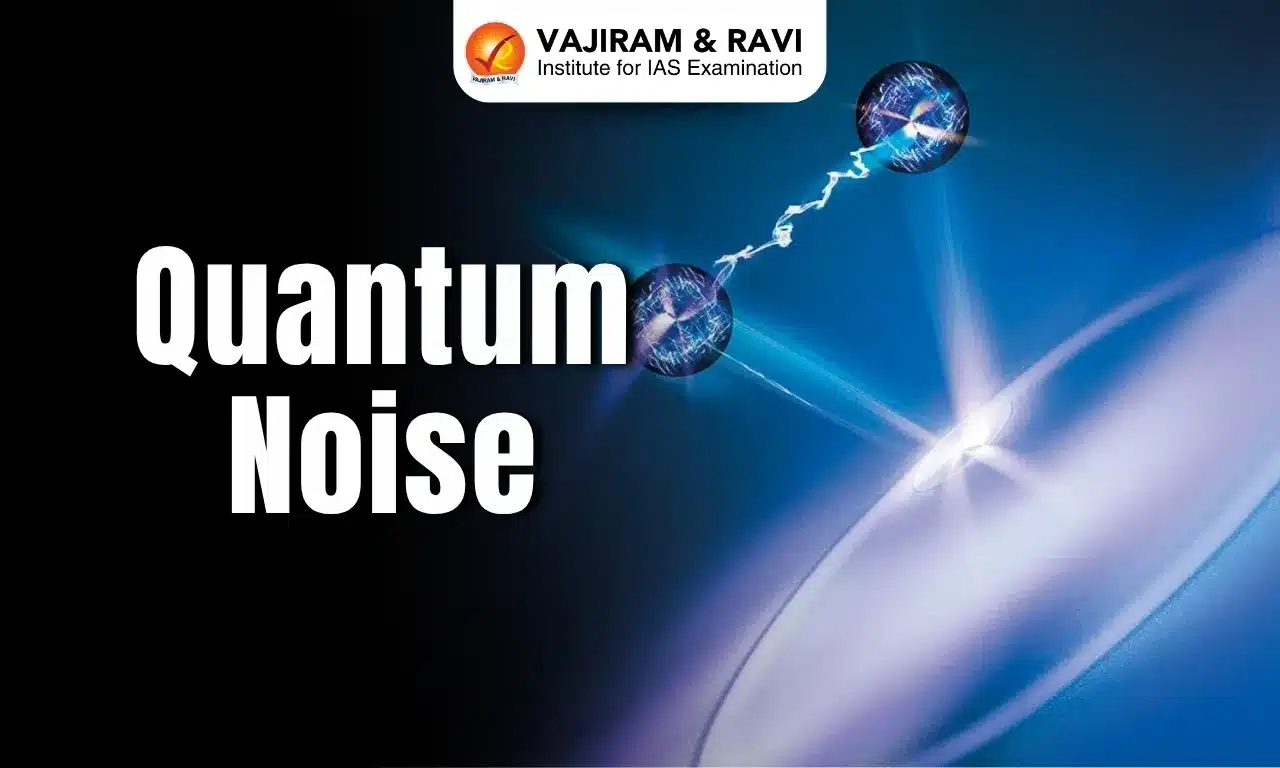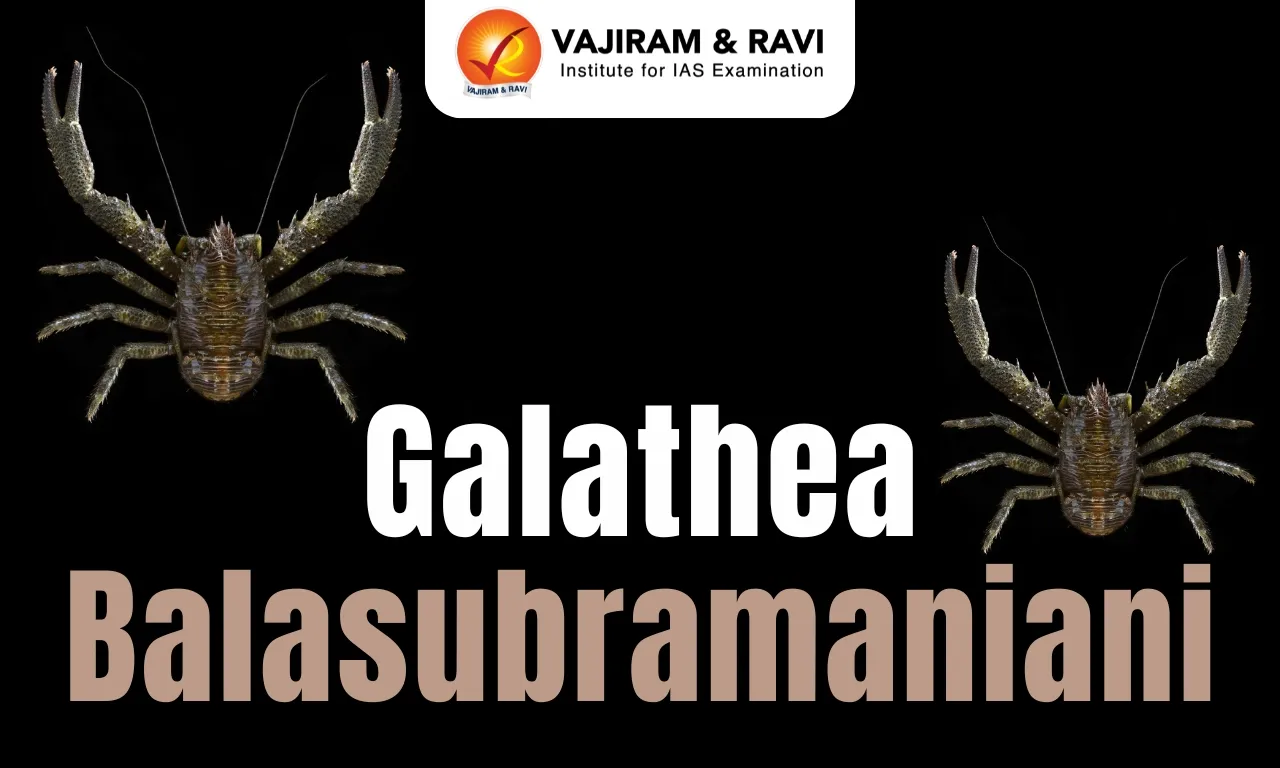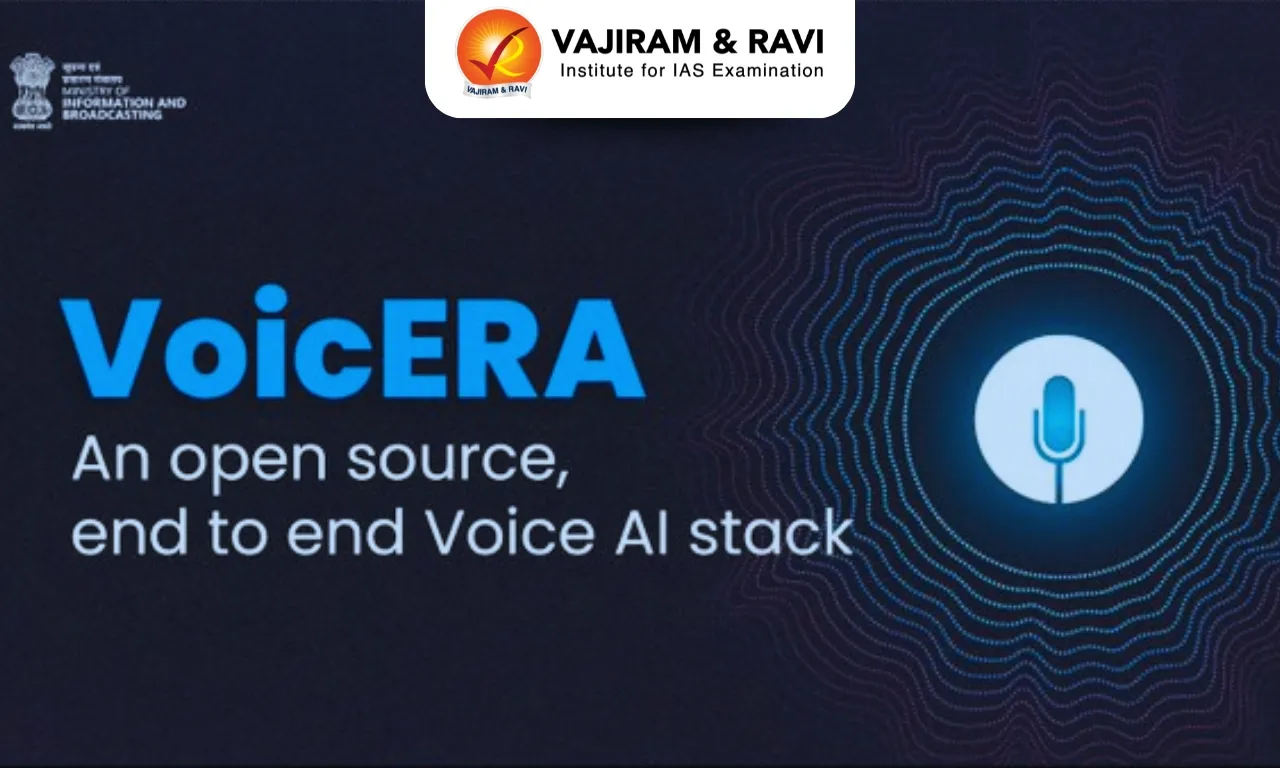Quantum Noise Latest News
Researchers at the Raman Research Institute (RRI) recently made the discovery that “quantum noise” which was always thought to be detrimental to quantum systems, is potentially beneficial in some situations.
About Quantum Noise
- It refers to the unwanted disturbances that affect quantum systems, leading to errors in quantum computations.
- Unlike classical noise, which might simply add random errors to a signal, quantum noise can have more complex and detrimental effects.
- What Causes Quantum Noise?
- Quantum noise comes from the fact that energy—like light or radio waves—exists in discrete packets, or quanta.
- For example, light is made of photons, and radio waves are made of individual electromagnetic excitations. When you try to measure or amplify these signals, there’s a natural limit to how accurately you can do so.
- This is a direct result of the Heisenberg uncertainty principle, which says you can’t perfectly measure certain pairs of properties (like the strength and phase of a wave) at the same time. These unavoidable fluctuations are what we call quantum noise.
- Even if you had a perfect detector in a perfectly quiet room at absolute zero temperature, quantum noise would still be present.
- Quantum noise can arise from various sources, including thermal fluctuations, electromagnetic interference, imperfections in quantum gates, and interactions with the environment.
- Different types of quantum noise affect qubits in distinct ways. For example, phase noise alters the relative phase between the basis states of a qubit, while amplitude noise affects the probabilities of measuring different states.
- Understanding and characterizing these noise sources is crucial for error mitigation.
- It’s a major challenge in the development of quantum computers, as it can cause qubits to lose their delicate quantum state, known as decoherence.
- Even small amounts of noise can lead to decoherence, causing qubits to lose their superposition and entanglement properties.
- This loss of quantum information can render computations meaningless and limit the size and complexity of feasible quantum algorithms.
Source: PIB
Last updated on February, 2026
→ UPSC Notification 2026 is now out on the official website at upsconline.nic.in.
→ UPSC IFoS Notification 2026 is now out on the official website at upsconline.nic.in.
→ UPSC Calendar 2026 has been released.
→ Check out the latest UPSC Syllabus 2026 here.
→ Join Vajiram & Ravi’s Interview Guidance Programme for expert help to crack your final UPSC stage.
→ UPSC Mains Result 2025 is now out.
→ UPSC Prelims 2026 will be conducted on 24th May, 2026 & UPSC Mains 2026 will be conducted on 21st August 2026.
→ The UPSC Selection Process is of 3 stages-Prelims, Mains and Interview.
→ Prepare effectively with Vajiram & Ravi’s UPSC Prelims Test Series 2026 featuring full-length mock tests, detailed solutions, and performance analysis.
→ Enroll in Vajiram & Ravi’s UPSC Mains Test Series 2026 for structured answer writing practice, expert evaluation, and exam-oriented feedback.
→ Join Vajiram & Ravi’s Best UPSC Mentorship Program for personalized guidance, strategy planning, and one-to-one support from experienced mentors.
→ UPSC Result 2024 is released with latest UPSC Marksheet 2024. Check Now!
→ UPSC Toppers List 2024 is released now. Shakti Dubey is UPSC AIR 1 2024 Topper.
→ Also check Best UPSC Coaching in India
Quantum Noise FAQs
Q1. What is quantum noise?+
Q2. What fundamental principle of quantum mechanics explains the inevitability of quantum noise?+
Q3. What is the consequence of quantum noise on qubits in quantum computing?+
Tags: prelims pointers quantum noise upsc current affairs upsc prelims current affairs




















